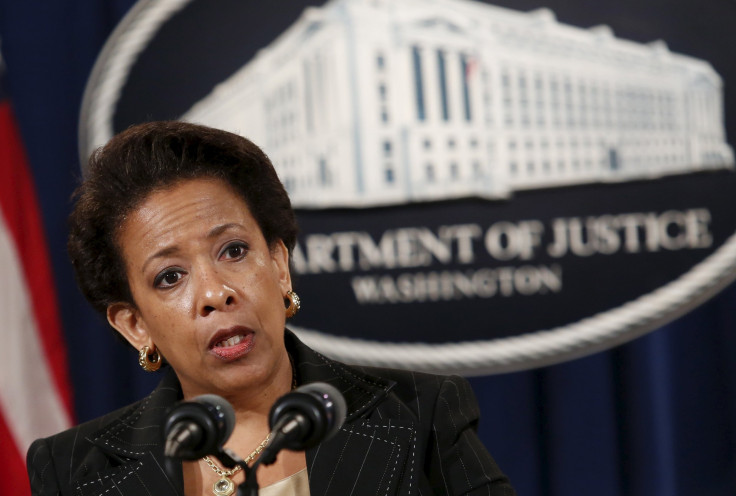CIA Torture Report: Human Rights Groups Write Letter Urging Attorney General Loretta Lynch To Pursue Criminal Investigations

A joint letter sent by human rights groups to U.S. Attorney General Loretta Lynch on Tuesday called for the appointment of a special prosecutor to investigate the Central Intelligence Agency’s use of enhanced interrogation techniques revealed by a Senate report released late last year. The letter, signed by Human Rights Watch, the American Civil Liberties Union and Amnesty International, asked Lynch’s office to investigate “torture and other violations of U.S. law” in connection to the programs.
A petition with 111,788 signatures was attached to the joint letter. In the six months since the Senate report was released, the letter says, the Obama administration hasn’t taken any steps to criminally investigate the interrogation practices.
“The Justice Department has a clear responsibility to carry out a credible and comprehensive criminal investigation into the overwhelming evidence that U.S. officials used torture in violation of U.S. law,” said Kenneth Roth, executive director of Human Rights Watch, in a press release. “The Obama administration’s continued failure to act in the face of this mountain of evidence risks sending the message that torture is a valid policy option rather than the crime that it is.”
The Department of Justice, in a statement provided to International Business Times, said that it looked into the programs in both 2009 and again after the torture report was released.
"In 2009, the Attorney General directed a preliminary review of the treatment of certain individuals alleged to have been mistreated while in U.S. Government custody subsequent to the 9/11 attacks. That review generated two criminal investigations, but the Department of Justice ultimately declined those cases for prosecution because the admissible evidence would not be sufficient to obtain and sustain convictions beyond a reasonable doubt," a spokesman said in an email. "Those investigators have also reviewed the Senate Committee’s full report and did not find any new information that they had not previously considered in reaching their determination. This inquiry was extraordinarily thorough and we stand by our previously announced decision not to initiate criminal charges."
The Senate report, released in December, detailed a program that began soon after the Sept. 11 terrorist attacks. An initial memo authorized the CIA with considerable discretion over whom to detain in intelligence-gathering operations. From there, and through subsequent memos, the CIA and U.S. intelligence operations were able to establish secret detention centers. Under the rationale that the combatants captured in the war on terror were not protected as prisoners of war under the Geneva convention, a set of so-called "enhanced interrogation techniques" such as waterboarding were used to force information from prisoners. The interrogation techniques were discontinued through executive action soon after President Barack Obama took office.
The report set off a heated public debate, and critics of the program pointed to scant evidence that the interrogation techniques, which were often characterized as torture, had led to significant, reliable intelligence. Earlier this month, the Senate voted to ban waterboarding and "rectal feeding," which would permanently extend Obama’s executive order.
“We must continue to insist that the methods we employ in this fight for peace and freedom must always, always, be as right and honorable as the goals and ideals we fight for,” said Sen. John McCain, R-Ariz., chairman of the Armed Services Committee and a former of prisoner of war.
The torture ban was part of a bigger National Defense Authorization Act that the Senate ultimately passed overwhelmingly. A final version of the bill could be passed in early July.
© Copyright IBTimes 2025. All rights reserved.






















